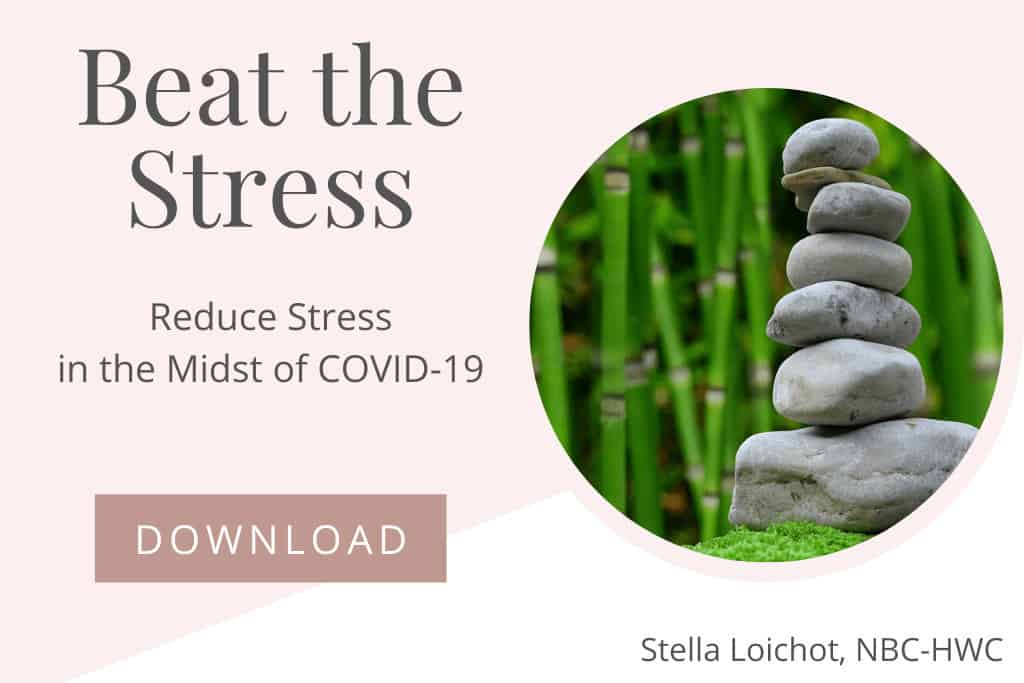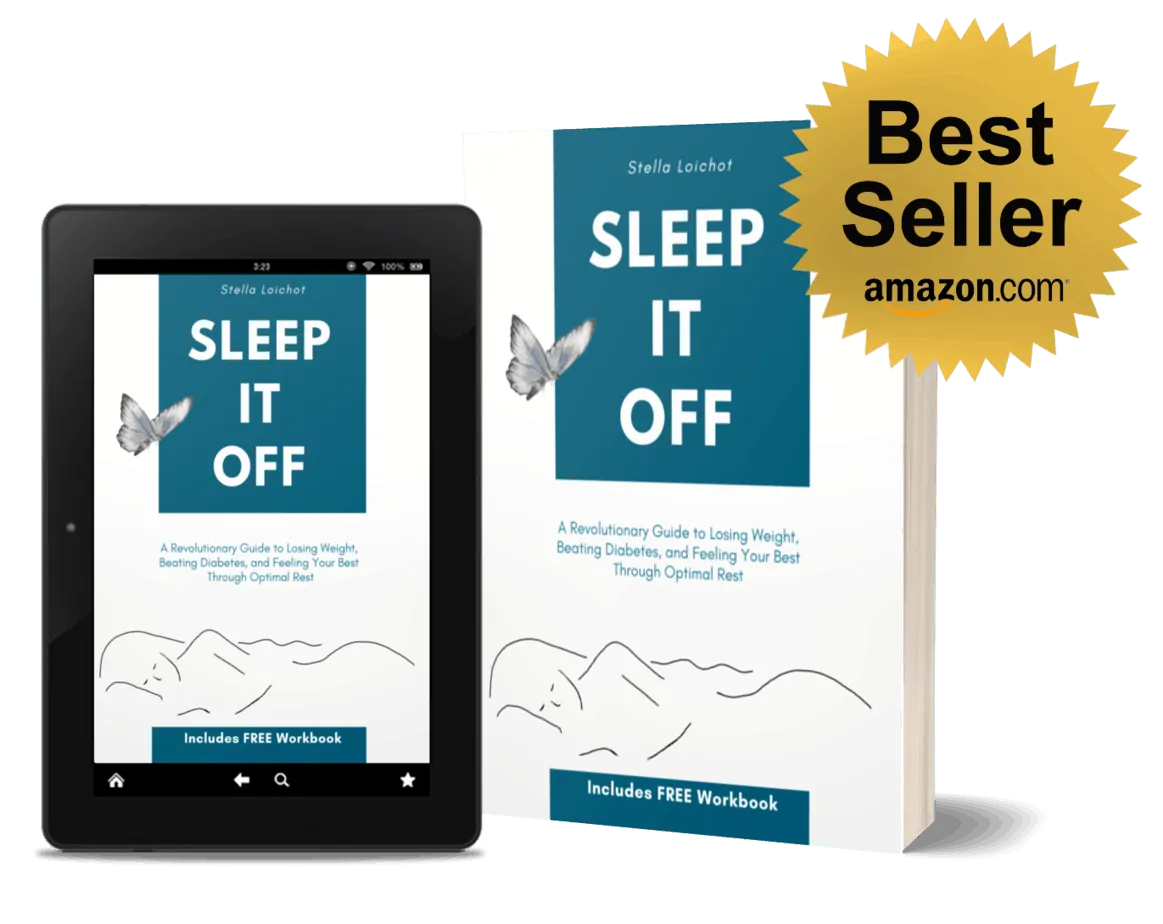Over the past few months, my job as a Health and Wellness Coach has shifted from working mostly with adults who were determined to eat healthier and be physically active, to adults who are feeling exhausted and unproductive, and completely powerless about it. It breaks my heart to witness so many clients feeling that they are losing their grip on life and, worst of all, feeling guilty about it.
No more work/life balance
The pandemic, because it has changed the way we work and live, is blurring the boundaries between work and personal life. Many of us are not commuting to work anymore. At first, it was perceived as something positive. We were given a chance to reclaim several wasted hours every single day! It sounded awesome and refreshing.
But soon, that "free" time got filled up with extra work, a little extra browsing on the phone, a few extra social media posts, and nothing healthy, relaxing, or rewarding. Few of the activities we fill our extra time with give us a sense of achievement or a sense that we are living a purposeful life.
Some of us have decided to sleep a little longer, which would have been a great decision if we were still going to bed at the same time as before. Unfortunately, that doesn't happen. The lack of physical activity has also impacted our ability to fall asleep at night, so we go to bed later and later. Some of us take our time in the morning instead of rushing the way we used to. This could be a good thing too, if going slower allowed us to live in the moment, be more mindful, and be more aware. But that is rarely the case. We just end up feeling lazy and wandering around like lost souls.
What most of us end up doing is work longer hours. We start earlier in the morning, finish later at night, and just let workdays drag along, somehow filling up the time that we could have called "free" time if it hadn't made us feel guilty. We are not always sure why we work longer; we just tell ourselves that we don't have a choice or that there is nothing else to do anyway.
Am I working enough?
We work longer hours, yes. And yet, we can't shake this nagging feeling that we are never doing enough, or that we might not even BE enough. When you start working early, nobody sees you. When you work late at night, no one notices. You might skip lunch for a Zoom meeting, but nobody cares. If you don’t leave your desk all day, there isn't a colleague or a manager who will stop by to encourage you to take a break.
We work longer hours, we don't talk with our peers, there are no happy hours, no more chatting by the water cooler or the coffee machine. We feel invisible and it seems that even if we worked 24/7, we would still feel that we are not doing enough, because there is no acknowledgement of our dedication. We don’t even acknowledge our own work! But why?
We don't feel productive
Even though we are working for longer periods of time, we are also extremely distracted because we are working at home. Checking the news, sending texts, interacting with trolls on social media, shopping online, and checking the news again... It is a recurring issue for many people I have been working with lately. Distractions are endless and tempting and it is very hard to stay focused. To the point where people have wondered if maybe they should seek treatment.
This lack of focus and productivity is reinforcing the feeling that we are not productive and leads to us losing our self-confidence. Because we feel that we are not worth much, we say yes to all the demands from our peers and managers and we end up not only being overworked, but also falling behind on projects. Of course, this is feeding a vicious cycle that leads to even more time spent working, more stress, and sometimes even the fear of losing a job, which can be terrifying in such a tough economy.
It gets even worse for parents as they try to juggle working from home and home-schooling. They feel that they are not fully committed to their work, and they feel that they are doing a poor job supporting their kids. They are under the impression that they are failing both their company and their children. Their self-confidence shrinks as they unconsciously add more and more tasks to their to-do-list, making their life increasingly overwhelming.
How to work less and get more done?
Not everyone will need the same approach, of course, but here are a few strategies that could help you get started.
Claim back your commute time
Go back to the schedule you had before. Wake up as you would if you had to physically go to work and make sure you use your "free" time for healthy activities such as a workout, a stretching routine, preparing a healthy breakfast and eating it slowly and mindfully, meditating, etc. Don't "fill up" time with useless activities that won't give you a sense of achievement. If you need help visualizing what you achieve every morning, have a small pre-work to-do-list and get things checked off that list. It will be empowering to start the day by being productive, will put you in a more positive mindset, and will set you up for success.
Schedule blocks of focused work-time
Make sure you have blocks of time set aside each day to tackle your most important projects without distraction. Have a plan of what you want to achieve during that block of time and stick to it. Don't let other people or tasks interrupt you. If you find it hard to stay focused, start small. Maybe 30 minutes of uninterrupted work is a good place to start. Then you can expand to 1 hour and keep going until you feel that you are being productive enough. If other people tend to come into your workspace at home, put up a sign and keep them away. It won't happen overnight, but you can inform them and bring them to respect your "working privacy".
Set phone on do-not-disturb
If you can't put your phone away while focusing on a work project, make sure that it is at least on do-not-disturb mode. This way, only the people you have selected will be able to reach you directly. All others will leave a message that you can address once you are available. Getting calls, text messages, and notifications during work is extremely distracting and we waste a lot of time looking at every incoming call or message and deciding whether it's worth interrupting our work or not. Not to mention the time it takes to go back to our task after the interruption. Most phone calls, texts and notifications can wait. Let's keep in mind that we are rarely THAT important. Turning off notifications for Slack and other team chat tools could really make a difference. Try it for a day or two and see how it goes.
Plan for a true lunch break
I have to say, many of my clients have been really dedicated to their lunch break and preparing a healthy lunch for themselves almost each day. That's great! While you are at it, you might also use the opportunity to go for a short walk before lunch if you can, stretch your body, or do a little strength training session. 10 minutes can go a long way if you do it 5 times per week!
If you like to be social but don't have anyone to eat lunch with at home, maybe you can offer a "Zoom lunch" with your colleagues. Don't make it formal; just turn on a camera and have lunch together, the way you used to before COVID-19. Not only might it feel refreshing to chat with your peers, but you could also benefit from the casual work conversations that often play such an important role in understanding what else is going on in the workplace.
"Leave" work at a specific time
Most of us had a routine when we were in the office. Maybe we had a bus or a carpool to catch. Maybe the office closed at a certain time or we had to pick up the kids on the way home. We need to recreate that time-limit to make sure work does not spill into our personal life. For some people, just setting an alarm at the end of the day is enough. Yet, many need more than that to be able to turn off their computer. Maybe you can commit to grocery shopping for dinner on certain nights. Or you can plan a game with the kids and make sure they hold you accountable for being on time. You can also schedule a walk with a friend, or a jog in the neighborhood. You can commit to calling an elderly parent at a specific time. Why not sign up for an online class that you really look forward to and won't want to miss? The sky is the limit, but you must find what is going to motivate YOU to stop working at night.
I find that this strategy works best if you give yourself the possibility to go back to work after the activity in question is over. Otherwise, you might keep pushing it back, or cancel it all together. It is best to stop working with the idea that if you really need to, you will go back to your computer a bit later, rather than not stop working at all. The thing is, if you turn off your computer and go for a walk, when you come back, you will have to make a mindful decision as to whether or not you want to work longer. If you don't stop in the first place, you are just mindlessly letting your workday eat up your personal life.
How are you sleeping through this?
Work/Life balance is not the only aspect of our daily life that has been affected by COBID-19. So many of us have been suffering from insomnia, sometimes because of the high level of stress we experience, sometimes because of the lack of physical activity, or any other change in our daily routine. If you need a step-by-step action plans to improve your sleep, check out my new book SLEEP IT OFF, A Revolutionary Guide to Losing Weight, Beating Diabetes, and Feeling Your Best Through Optimal Rest. It is available for purchase on Amazon (Kindle and Paperback) and from what I understand, it has already helped many readers sleep better and feel better.
And if this article was helpful for you, please share it with your friends and don't forget to sign up for my newsletter. It comes out twice per month and this is how you can receive such an article directly in your inbox.
Best wishes... you got this!


